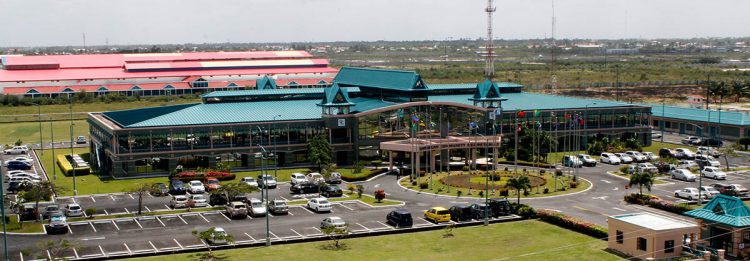As the region moves to create a collective response to some of the setbacks that have arisen out of the advent of COVID-19 and its impact on the economies of the respective countries, there are indications that some of the key entities for the planning and execution of collective responses, including the Caribbean Commu-nity (CARICOM) are beginning to take practical initiatives to design ways of tackling their collective challenges head on.
On Wednesday, the George-town-based CARICOM Secretariat issued a media release disclosing some of the details of a virtual meeting of CARICOM Ministers of Agriculture “that included the participation of high-level authorities of the agriculture sector, representatives of financial institutions, development organizations and donors.”

The meeting, according to the release, was intended to provide a forum through which their region could secure information on accessible funding opportunities through which they will be better positioned to access resources “to implement recovery actions in the agriculture and rural sectors to address the impact of Covid-19.”
Arising out of the meeting CARICOM member countries will doubtless be pleased to learn that up to eight international support agencies – The Spanish Agency for International Development Cooperation (AECID), the Caribbean Development Bank (CDB), the Green Climate Fund (GCF), the Inter-American Development Bank (IDB), the Development Bank of Latin America (CAF), the World Bank (WB), the European Union (EU) and the International Fund for Agricultural Development (IFAD) “presented their credit lines and opportunities for monetary support.” As participants from some member countries in the region noted, however, the urgency of the circumstances require that support initiatives be expedited in a manner that reflects a mindfulness of the urgency of the situation.
Recovery support for CARICOM countries could also be forthcoming from support sources in hemispheric countries including Argentina, Brazil and Uruguay, which according to the Secretariat, confirmed their willingness to collaborate and share experiences with CARICOM countries through South-South cooperation in areas such as good agricultural practices, research and development, genetic improvement, sustainability, efficient use of soils, capacity building, business and agricultural trade.
The prospect of securing support for their agricultural sectors from some of the ‘brightest stars’ in agriculture in the hemisphere could enhance the possibility of the region reducing its estimated US$5 billion annual food import bill in the foreseeable future.
The videoconference, the CARICOM release said, allowed for the representatives of financial institutions, development organizations and donors to advise CARICOM Ministers of funding alternatives and resourc-es available to strengthen agriculture “with special emphasis on food security, resilience, economic recovery, technological innovation, sustainable use of resources, and the preservation of biodiversity, among other areas.”
Devastating hurricanes in successive years and the more recent onset of COVID-19 and its effects have left some CARICOM countries dangerously vulnerable to food shortages and the haste with which this week’s virtual conference has been organised reflects the sense of urgency associated with getting agriculture in the region back on track and providing food-related support for those countries in the intervening period.
Significantly, IICA Director Manuel Otero told the forum that the organisation was seeking to “respond to the needs and demands of the region to mitigate the problems facing agriculture in the Caribbean, laying the groundwork for a more resilient and robust sector.”






